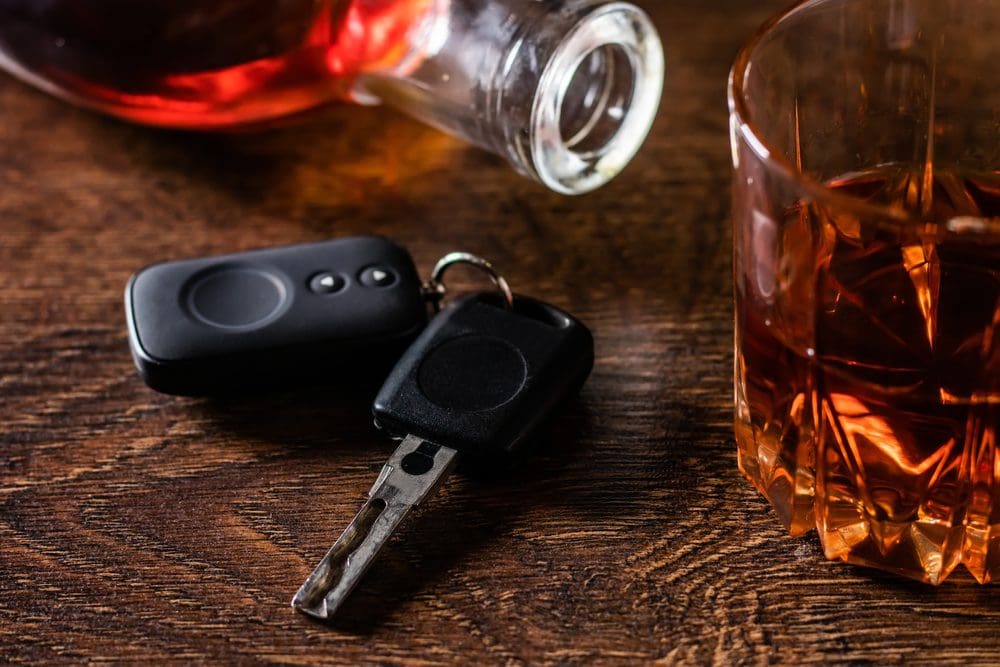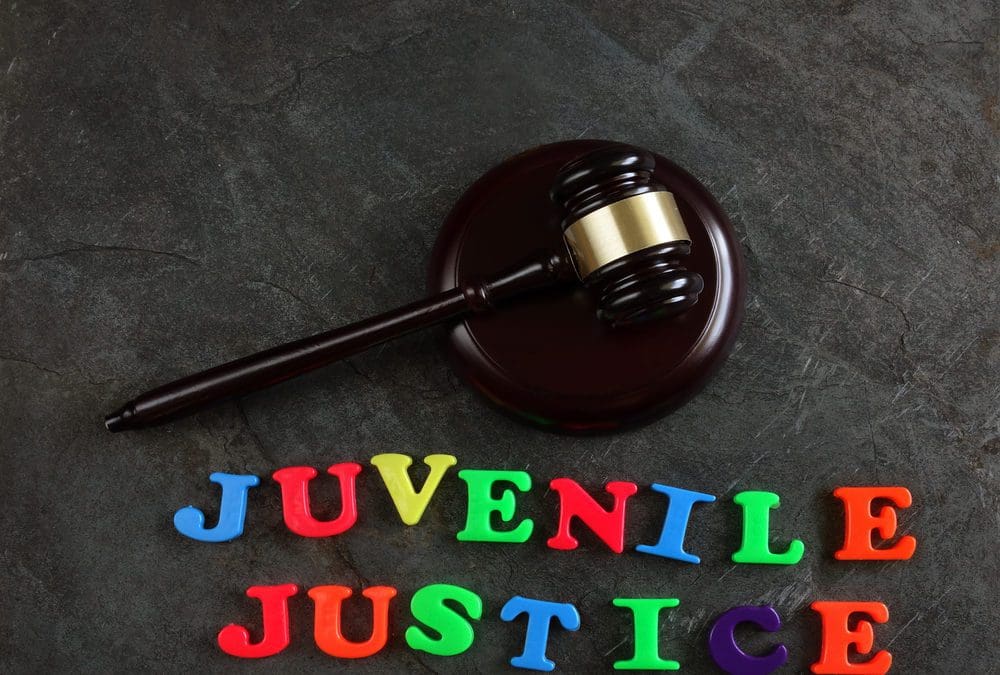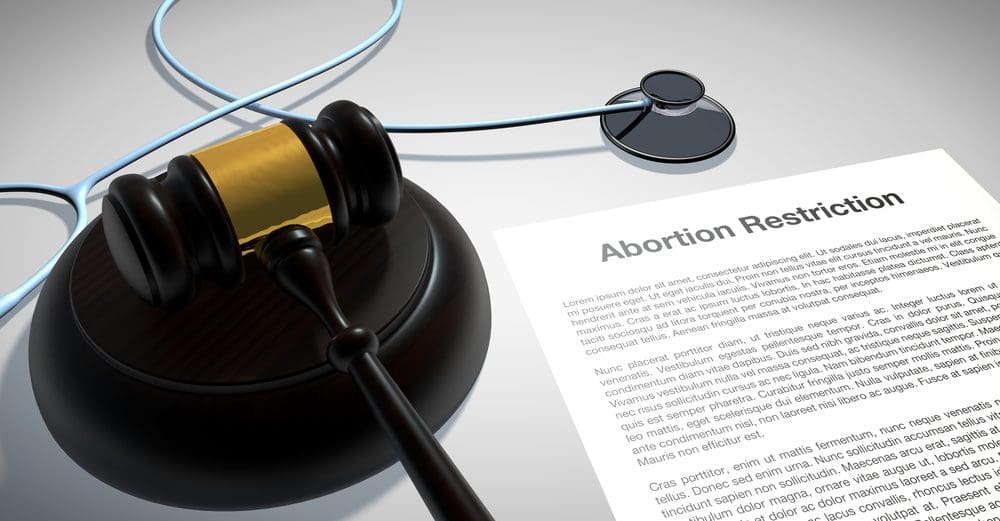
FEDERAL SENTENCING UPDATE
FEDERAL SENTENCING UPDATE: AMENDMENTS SCHEDULED TO TAKE EFFECT NOVEMBER 1, 2023
For the first time in five years, the United States Sentencing Commission has adopted proposed amendments to the Federal Sentencing Guidelines. These amendments are currently with Congress for a 180-day review period ending November 1, 2023. If Congress does not act to disapprove the amendments, they will become effective at that time. This article provides a summary of some important proposed changes.
Amendment 821: Criminal History
Amendment 821 makes three important changes to the criminal history rules, all of which could reduce the guideline range for certain offenders. Because two parts of Amendment 821 (Parts A and B) may reduce the sentencing range of future defendants, the Commission was required to consider retroactivity—e.g., whether judges can extend those reductions to those individuals already incarcerated. In August of 2023, the United States Sentencing Commission voted 4-3 to authorize judges to begin considering petitions for sentence reductions for eligible prisoners beginning February 1, 2024 (assuming the new guidelines become effective November 1, 2023).
Part A: “Status Points” will no longer apply to offenders with less serious criminal histories
Part A of Amendment 821 limits the criminal history impact of “Status Points” at § 4A1.1. First, the amendment limits the use of “Status Points” – which are added if a defendant committed the instant offense “while under any criminal justice sentence, including probation, parole, supervised release, imprisonment, work release, or escape status” in certain situations. As amended, the “status points” provision applies only to offenders with more serious criminal histories under the guidelines. In other words – “status points” will no longer apply to offenders with less serious criminal histories – i.e., six or fewer criminal history points – even if the instant offense was committed while the offender was under a criminal justice sentence.
Second, the amendment changes U.S.S.G. § 4A1.1(e). For defendants with more serious criminal histories (seven or more criminal history points), the amendment adds one point, rather than two points.
In support of these changes, data released by the Sentencing Commission reveals that over the last five years, status points were applied in 38% of cases. This resulted in moving 62% of such offenders into a higher criminal history category. At the same time, Commission data revealed that status points minimally improve the criminal history score’s successful prediction of rearrest – by just .2%. See https://www.ussc.gov/guidelines/amendment/821
Part B: Zero-Point offenders may receive a decrease of two offense levels
Part B, Subpart 1 of Amendment 821 creates a new Chapter Four guideline at § 4C1.1 decreasing by two the offense levels for defendants who did not receive any criminal history points and whose instant offense did not involve specific aggravating factors.
Part B of this amendment is in response to Congress’ directive to consider the appropriateness of imposing a sentence other than imprisonment in cases in which the defendant is a first time offender who has not been convicted of a crime of violence or other serious offense.
Accordingly, “zero point offenders” are now defined as individuals with no criminal history points subject to a series of exclusions related to the seriousness of the instant offense of conviction or certain aggravating factors. See U.S.S.G. § 4C.1.1 (Proposed Amendment 821).
In explaining this change, the Commission noted that zero-point offenders recidivated far less than other offenders (27% versus 42% for one-point offenders). In 2021, zero-point offenders accounted for one-third of the federal sentencing caseload with district courts sentencing just 39% of these offenders within the guidelines range (often citing overstatement of criminal history as a reason for below range sentences). Seehttps://www.ussc.gov/guidelines/amendment/821
Part C: Downward departure may be warranted for criminal history reasons in prior marijuana possession sentences
Part C amends § 4A1.3 Commentary to include prior marijuana possession as an example of when a downward departure due to the defendant’s criminal history may be warranted. In other words, Part C now provides that a downward departure may be warranted if the defendant received criminal history points from a sentence for possession of marijuana for personal use (without an intent to sell or distribute).
The Commission’s rationale for this amendment is that many states have reduced or eliminated penalties for marijuana possession but these convictions still impact a federal offender’s criminal history score. The Commission noted that marijuana possession priors increased the criminal history score for 8% of all federal offenders sentenced in fiscal year 2021 – moving 40% of such offenders into a higher criminal history category. Most marijuana possession priors were for state court convictions resulting in less than 60 days in prison.
In fiscal year 2021, 97% of federal offenders’ marijuana possession priors were for state convictions – some from states that have reduced or eliminated penalties. However, marijuana possession priors from these states resulted in higher criminal history calculations under the federal sentencing guidelines for 695 offenders. See https://www.ussc.gov/guidelines/amendment/821
Retroactivity: Parts A and B may apply to currently incarcerated individuals
The Commission has estimated that retroactive application of Parts A and B of Amendment 821 would affect many currently incarcerated individuals:
- 11,495 incarcerated individuals will have a lower sentencing range under Part A of Amendment 821 relating to “Status Points” with a possible sentence reduction of 11.7%, on average.
- 7,272 incarcerated individuals would be eligible for a lower sentencing range based upon the established criteria under Part B of Amendment 821 relating to “Zero-Point Offenders” with a possible sentence reduction of 17.6%, on average. See https://www.ussc.gov/research/data-reports/retroactivity-analyses-and-data-reports.
As stated above, this year’s guideline amendments are with Congress for a 180-day review period ending November 1, 2023. If Congress does not act to disapprove the amendments, courts can begin considering petitions for sentence reductions and could order a reduced term of imprisonment effective February 1, 2024 or later.
Amendment 814: Compassionate Release
Amendment 814 responds to the First Step Act of 2018, which authorized courts to grant a motion for a sentence reduction based on a defendant’s own motion. Amendment 814 revises § 1B1.13 to reflect that a defendant is authorized to file a motion for compassionate release, making § 1B1.13 applicable to motions filed by the defendant and motions filed by the Bureau of Prisons (BOP).
As outlined below, the amendment also expands the list of “extraordinary and compelling reasons” for compassionate release in five ways: (1) adds “medical circumstances” subcategories; (2) modifies the “family circumstances” category; (3) adds a “victim of abuse” category; (4) revises the “other reasons” category; and (5) adds an “Unusually Long Sentences” category, permitting consideration of non-retroactive changes in law in a limited set of circumstances. See https://www.ussc.gov/guidelines/amendment/814
Additional Medical Circumstances Considered
With Amendment 814, the Commission expanded medical circumstances (as a basis for compassionate release) to include those that were most often cited by courts in granting sentence reduction motions—including the requirement of long-term care and circumstances arising from COVID-19 (and other outbreaks of infectious disease). See U.S.S.G § 1B1.13(b)(1) (Proposed Amendment 814)
With regard to long-term care, the defendant must be “suffering from a medical condition that requires long-term or specialized medical care that is not being provided and without which the defendant is at risk of serious deterioration in health or death.” U.S.S.G § 1B1.13(b)(1)(C) (Proposed Amendment 814).
The subsection regarding COVID-19/outbreaks, requires that:
(i) the defendant is housed at a correctional facility affected or at imminent risk of being affected by (I) an ongoing outbreak of infectious disease, or (II) an ongoing public health emergency declared by the appropriate federal, state, or local authority;
(ii) due to personal health risk factors and custodial status, the defendant is at increased risk of suffering severe medical complications or death as a result of exposure to the ongoing outbreak of infectious disease or the ongoing public health emergency described in clause (i); and
(iii) such risk cannot be adequately mitigated in a timely manner.
U.S.S.G § 1B1.13(b)(1)(D)(Proposed Amendment 814).
Additional “Family Circumstances” Considered
Second, the modification to the list of extraordinary and compelling reasons revises the “family circumstances” ground in three ways. It expands the provision relating to the death or incapacitation of the caregiver of a defendant’s minor child to include a child who is 18 years of age or older and incapable of self-care because of a mental or physical disability or a medical condition. See U.S.S.G. § 1B1.13(b)(3)(A).
Also, the amendment creates a new provision that applies when a defendant’s parent is incapacitated, and the defendant would be the only available caretaker. Finally, the amendment creates a new provision when circumstances exist with respect to a person whose relationship with the defendant is similar in kind to that of an immediate family member, and the defendant would be the only available caretaker. Relief is available under the two new provisions only if the defendant establishes both the existence of a qualifying relationship and the defendant is the only available caregiver. § 1B1.13(b)(3)(C-D).
New “Victim of Abuse” Category
This provision addresses instances where an individual in custody has been the victim of sexual assault by a correctional officer, an employee or contractor of the BOP, or any other individual having custody or control over the defendant. This misconduct must be established by a conviction in a criminal case, a finding or admission of liability in a civil case, or a finding in an administrative proceeding unless the defendant establishes that such proceedings are unduly delayed or the defendant is in imminent danger. U.S.S.G. § 1B1.13(b)(4) (Proposed Amendment 814).
For some background, in 2022, the Senate Permanent Subcommittee on Investigations found widespread sexual abuse by officers in federal prisons with few consequences. As a result of this investigation, the Department of Justice has asked for harsher prison sentences for officers who abuse the people they are intended to protect. The new directors of the BOP are reviewing how wardens are selected and supervised. Additional cameras are being installed in facilities. Also, the bipartisan Federal Prison Oversight Act has been introduced, which aims to create independent oversight of the federal prison system and provide for more inspections of those facilities.
Modified “Other Reasons” Category
This broad catchall provision is retained in the amendment and gives courts the ability to consider other reasons similar in gravity to those enumerated. It makes clear that courts have both discretion and guidance necessary to grant reductions in cases with reasons similar in gravity to those already considered in any appropriate case. U.S.S.G. § 1B1.13(b)(5) (Proposed Amendment 814).
New “Unusually Long Sentences” Category
This amendment responds to a circuit split concerning whether changes in law (including amendments to the Guidelines manual that have not been made retroactive) may be considered in ruling on a sentence reduction motion. The amendment permits the consideration of such changes in law only when a defendant has served 10 years and an intervening change in the law would have resulted in a shorter sentence had it been in place at the time of sentencing.” U.S.S.G. § 1B1.13(b)(6)(Proposed Amendment 814).
Amendment 818: Fake Pills – Two-Level Enhancement
Amendment 818 adds a two level enhancement at § 2D1.1(b)(13) for cases where the defendant represented or marketed as a legitimately manufactured drug another substance containing fentanyl or a fentanyl analogue and acted with willful blindness or conscious avoidance of knowledge that such mixture or substance was not the legitimately manufactured drug.
As background, in 2018, the Commission added a four-level sentencing enhancement for knowingly misrepresenting or knowingly marketing fentanyl or fentanyl analogues as another substance. Sentencing Commission data reveals, however, that federal fentanyl and fentanyl analogue cases have dramatically risen since that time. In the last fiscal year, for example, 50.6 million fake pills were seized, 70% of which contained fentanyl. See https://www.ussc.gov/guidelines/amendment/818 According to the CDC overdose deaths that had evidence of fake pills use accounted for just 2% of fatalities between July and September of 2019. That figure jumped to 4.7% between October and December of 2021.
The Sentencing Commission has attempted to address this issue by creating this new two-level enhancement to address the increased culpability of those who act with willful blindness or conscious avoidance of knowledge. The new alternative two-level enhancement provides that the government bears the burden to prove by a preponderance of the evidence that the enhancement applies based on the subjective belief and deliberate action of the defendant committing the offense. See https://www.ussc.gov/guidelines/amendment/818
Amendment 822: Career Offender
This amendment clarifies definitions in the § 4B1.2 Career Offender guidelines related to the meaning of “robbery” and “extortion” and the treatment of inchoate offenses.
First, the amendment moves, without change, the definitions including certain inchoate and accessory offenses as well as enumerated offenses (i.e., “forcible sex offense” and “extortion”) and “prior felony conviction” from the § 4B1.2 Commentary to the guideline itself. This change addresses a circuit split – and clarifies that these definitions are now authoritative.
Also, with regard to inchoate offenses, the amendment clarifies that “[t]he terms ‘crime of violence’ and ‘controlled substance offense’ include the offenses of aiding and abetting, attempting to commit, or conspiring to commit any such offense.” U.S.S.G. § 4B1.2 (Proposed Amendment 822).
Finally, the amendment adds a definition of “robbery” that mirrors the “robbery” definition at 18 U.S.C. § 1951(b)(1), and revises the definition of “controlled substance offense” in §4B1.2(b) to include new maritime-related offenses. For more information on this amendment, see https://www.ussc.gov/guidelines/amendment/822
Amendment 820: Acceptance of Responsibility
This amendment is in response to a circuit conflict over whether a sentence reduction for acceptance of responsibility, which requires a § 3E1.1 motion from the government, may be withheld or denied if a defendant moves to suppress evidence or raises sentencing challenges.
The current guidelines provide the following:
(b) If the defendant qualifies for a decrease under subsection (a), the offense level determined prior to the operation of subsection (a) is level 16 or greater, and upon motion of the government stating that the defendant has assisted authorities in the investigation or prosecution of his own misconduct by timely notifying authorities of his intention to enter a plea of guilty, thereby permitting the government to avoid preparing for trial and permitting the government and the court to allocate their resources efficiently, decrease the offense level by 1 additional level.
3E1.1(b)
The issue with this provision is that circuit courts have defined “preparing for trial” differently. Three circuits (the Third, Fifth, and Sixth Circuits) allow the government to withhold a 3E1.1 motion based on the defendant’s filing of a suppression motion. Five circuits (the First, Second, Ninth, Tenth, and D.C. Circuits) have held that a reduction may not be denied on this basis. With regard to sentencing challenges, the First, Third, Seventh and Eighth Circuits have held that the government may withhold such motion based on defendant’s sentencing challenges, while the Second and Fifth circuits have held that it may not.
This circuit split resulted in uneven sentencing. And the impact of losing an additional level under 3E1.19(b) resulted in defendants (in some districts) being deterred from exercising their constitutional rights by pursuing evidentiary and/or sentencing challenges. As Justices Sotomayor and Gorsuch observed in 2021, the conflict as to whether a suppression hearing is a valid basis for denying a §3E1.1(b) reduction is both longstanding and has a potentially significant impact on defendants. See Longoria v. United States, 141 S. Ct. 978, 979 (2021) (statement of Sotomayor, J., with whom Gorsuch, J. joins, respecting the denial of certiorari, “emphasiz[ing] the need for clarification from the Commission” on this “important and longstanding split among the Courts of Appeals over the proper interpretation of § 3E1.1(b)”).
The 2023 Amendment now clarifies that suppression motions and sentencing objections are not considered “preparing for trial.” And do not prevent a defendant from later requesting a one level reduction under 3E1.1:
(b) If the defendant qualifies for a decrease under subsection (a), the offense level determined prior to the operation of subsection (a) is level 16 or greater, and upon motion of the government stating that the defendant has assisted authorities in the investigation or prosecution of his own misconduct by timely notifying authorities of his intention to enter a plea of guilty, thereby permitting the government to avoid preparing for trial and permitting the government and the court to allocate their resources efficiently, decrease the offense level by 1 additional level. The term “preparing for trial” means substantive preparations taken to present the government’s case against the defendant to a jury (or judge, in the case of a bench trial) at trial. “Preparing for trial” is ordinarily indicated by actions taken close to trial, such as preparing witnesses for trial, in limine motions, proposed voir dire questions and jury instructions, and witness and exhibit lists. Preparations for pretrial proceedings (such as litigation related to a charging document, discovery motions, and suppression motions) ordinarily are not considered “preparing for trial” under this subsection. Post-conviction matters (such as sentencing objections, appeal waivers, and related issues) are not considered “preparing for trial.”
U.S.S.G. § 3E1.1(b) (Proposed Amendment 820).
Amendment 819: Firearms
Following the Uvalde, Texas shooting, Congress passed the Bipartisan Safer Communities Act, wherein Congress directed the Commission to increase certain firearms penalties. Amendment 819 is a response to this directive. This amendment also reflects the Commission’s concern about “ghost guns”—particularly the increased frequency with which they are being used in criminal activity and the difficulty in tracing these firearms. See https://www.ussc.gov/guidelines/amendment/819
New Straw Purchase and Firearms Trafficking Offenses
The Bipartisan Safer Communities Act established two new offenses. The Act makes it unlawful to engage in straw purchasing of firearms (18 U.S.C. § 932) or trafficking in firearms (18 U.S.C. § 933). Both carry statutory maximum sentences of 15 years of imprisonment. 18 U.S.C. §§ 932(c)(1), 933(b). The statutory maximum in section 932 increases to 25 years where the defendant has reasonable cause to believe the firearm would be used to commit a felony or certain other offenses. 18 U.S.C. § 932(c)(2).
Amendment 819 makes two changes to account for the new offenses at 18 U.S.C. §§ 932 and 933 established by the Act. As both offenses address conduct that is analogous to other firearms offenses, the Commission determined that the most appropriate guideline is § 2K2.1. Amendment 819, therefore, amends Appendix A (Statutory Index) to reference these new offenses to § 2K2.1.
Second, the amendment revises § 2K2.1 to set the base offense level for defendants convicted of these crimes at level 14, or level 20 if the offense involved either a semiautomatic firearm that is capable of accepting a large capacity magazine or a firearm described in 26 U.S.C. § 5845(a).
Increased Penalties for Straw Purchasing and Trafficking Offenses
Amendment 819 revises the existing “trafficking” specific offense characteristic at § 2K2.1(b)(5) to increase penalties for illegally transferring a firearm. The amendment enhances penalties under this subsection in three ways. First, it creates a new subsection 2K2.1(b)(5)(A) which provides a two-level enhancement for defendants convicted of illegally receiving a firearm under 18 U.S.C. § 933(a)(2) (the trafficking receipt provision) or § 933(a)(3) (attempting/conspiring to violate section 933).
Second, the amendment creates a new subsection 2K2.1(b)(5)(B), which provides a two-level enhancement for any defendant engaged in straw purchasing or trafficking, to provide an increase for defendants who attempted, conspired, or engaged in conduct involving the illicit transfer of a firearm or ammunition but who would not have received the trafficking enhancement prior to the amendment because of the limiting criteria in the existing Application Note 13.
Third, the amendment revises subsection § 2K2.1 (b)(5)(C) to provide for an increase for defendants who attempted, conspired, or engaged in conduct involving the illicit transfer of two or more firearms to a person who (i) had a prior conviction of a crime of violence, controlled substance offense, or misdemeanor crime of domestic violence; (ii) was under a criminal justice sentence at the time of the offense; or (iii) intended to use or dispose of the firearms unlawfully. The new subsection (b)(5)(C) increases the enhancement from four levels to five levels to ensure straw purchasers and firearms traffickers meeting these criteria receive increased penalties.
Increased Penalties for Organized Crime
Amendment 819 increases penalties for organized crime by creating a new specific offense characteristic providing for a 2-level enhancement under § 2K2.1(b)(8) for trafficking in connection with knowingly participating in a criminal organization. Section 2K2.1(b)(8) applies to those defendants who receive an increase for trafficking (under subsection (b)(5)) and who committed the offense in connection with the defendant’s participation in an organization of five or more persons, knowing, or acting with willful blindness or conscious avoidance of knowledge, that the organization has as one of its primary purposes the commission of criminal offenses.
Increased Penalties for “Ghost Guns”
Amendment 819 addresses concerns raised by the Department of Justice regarding increased use of “ghost guns” (privately made guns with no serial number). The Commission determined that the same four-level enhancement under 2K2.1(b)(4) that applies in offenses involving an altered or obliterated serial number should be applied in these “ghost gun” cases as well.
Accordingly, Amendment 819 amends 2K2.1 to add a four-level increase for certain offenses involving “ghost guns.” This enhancement applies if the defendant knew that the offense involved a firearm not marked with a serial number, or the defendant was willfully blind or consciously avoided knowing this fact. In adding the enhancement, the Commission noted that there is no meaningful distinction between a firearm with an obliterated serial number, which has long-triggered a four-level enhancement under § 2K2.1(b)(4), and a firearm that is not marked with a serial number.
The amendment also specifically excepts firearms manufactured before the effective date of the Gun Control Act of 1968, which imposed the requirement that federal firearms licensees serialize newly manufactured or imported firearms. See U.S.S.G. § 2K2.1 (Proposed Amendment 819).
Reduction for Mitigating Circumstances
Congress directed the Commission to consider an amendment for straw purchasers with mitigating circumstances. Accordingly, Amendment 819 creates a two-level decrease at (b)(9) for less culpable straw purchasers with no more than one criminal history point. The amendment creates a new specific offense characteristic at § 2K2.1(b)(9) providing a two-level reduction available to defendants who (A) receive an enhancement at subsection (b)(5), (B) have no more than one criminal history point and: “(i) was motivated by an intimate or familial relationship or by threats or fear to commit the offense and was otherwise unlikely to commit such an offense; or (ii) was unusually vulnerable to being persuaded or induced to commit the offense due to a physical or mental condition.” U.S.S.G. § 2K2.1(b)(9)(C) (Proposed Amendment 819).
The amendment also deletes Application Note 15, which provided for a downward departure for certain straw purchasers, because the amended subsection (b)(9) provides a reduction with broader criteria.
Amendment 817: Safety Valve
In response to the First Step Act of 2018, Amendment 817 expands the applicability of the safety valve provision by allowing more offenders to be eligible for relief from mandatory minimum penalties. As originally enacted, the safety valve provision applied only to certain offenses and to defendants who, among other things, had not more than one criminal history point under the guidelines.
The amended § 5C1.2 extends the applicability of the safety valve to maritime cases. And, the act broadens the criminal history eligibility criteria to include defendants who do not have:
(A) more than 4 criminal history points, excluding any criminal history points resulting from a 1-point offense, as determined under the sentencing guidelines;
(B) a prior 3-point offense, as determined under the sentencing guidelines; and
(C) a prior 2-point violent offense, as determined under the sentencing guidelines.
Note that this language is adopted from the First Step Act and is the subject of a current circuit conflict that the Supreme Court will resolve in the fall term. The issue is the operation of the word “and” (in bold). The DOJ argues that “and” means “or” – that defendants are ineligible if they fail any of the three subparts. The appellant in that case argues that “and” means that a defendant must fail all three subparts to be ineligible.
Amendment 817 also revises § 5C1.2(b) to account for Congress’s directive requiring that the guideline minimum be at least 24 months for defendants whose statutorily required minimum sentence was at least five years by providing a minimum offense level of 17 for such offenders.
Before the First Step Act, only defendants in Criminal History Category (CHC) I (with no more than one criminal history point) could qualify for safety valve relief, and a base offense level of 17 therefore correlated with a guideline range of 24 to 30 months for all safety-valve eligible defendants. After the First Step Act, a safety-valve-eligible defendant can be in any CHC, and an offense level of 17 correlates with the following guideline ranges at each category: I (24–30 months); II (27–33); III (30–37); IV (37–46); V (46–57); and VI (51–63). See Commission commentary to amendments. See the United States Sentencing Commission Commentary to Amendment 817 at https://www.ussc.gov/guidelines/amendment/817
Finally, the amendment revises subsections (a)(1) and (a)(3) of § 2D1.1 to replace the term “similar offense” with the terms set forth in the First Step Act. Prior to this amendment, § 2D1.1(a)(1) provided for a base offense level of 43 “if the defendant is convicted under [any of six enumerated subsections], and the offense of conviction establishes that death or serious bodily injury resulted from the use of the substance and that the defendant committed the offense after one or more prior convictions for a similar offense.”
The amendment divides § 2D1.1(a)(1) into two subparagraphs, (A) and (B). Subparagraph (A), which references the four statutory provisions amended by the First Step Act, replaces the term “similar offense” with “serious drug felony or serious violent felony.” Subparagraph (B), which references the two provisions that were not amended, replaces the term “similar offense” with “felony drug offense.” See https://www.ussc.gov/guidelines/amendment/817
Amendment 816: Sexual Abuse Offenses
Amendment 816 responds to changes in the Violence Against Women Act Reauthorization Act and also addresses cases involving sexual abuse committed by law enforcement or corrections personnel against victims in their custody, care, or supervision.
Congress passed the Violence Against Women Act Reauthorization Act in 2022, establishing two new crimes. The first, codified at 18 U.S.C. § 250(a), prohibits any person from engaging in, or causing another to engage in, sexual misconduct, including certain attempts, while committing any civil rights offense. The second, codified at 18 U.S.C. § 2243(c), prohibits law enforcement officers from knowingly engaging in a sexual act with an individual under arrest or supervision, in detention, or in federal custody.
Separately, the Department of Justice urged the Commission to addresses concerns regarding the increasing number of cases involving sexual abuse committed by law enforcement or correctional personnel against victims in their custody, care, or supervision. As a result, the amendment increases the base offense level at § 2A3.3 (Criminal Sexual Abuse of a Ward or Attempt to Commit Such Acts) for such cases from 14 to 22. It also addresses the presence of aggravating factors in sexual abuse offenses by providing a cross reference to § 2A3.1 (Criminal Sexual Abuse; Attempt to Commit Criminal Sexual Abuse) for cases where the offense involved criminal sexual abuse or attempt to commit criminal sexual abuse. See https://www.ussc.gov/guidelines/amendment/816
Conclusion
Important changes to the federal sentencing guidelines are imminent. It is vital to consult with an attorney who understands the application of these changes and how they may affect your case. With decades of experience defending individuals charged with federal crimes, the legal team at Davis & Hoss is ready to help individuals with questions. Contact Attorney Lee Davis at lee@davis-hoss.com or by phone at 423-266-0605 for more information.




